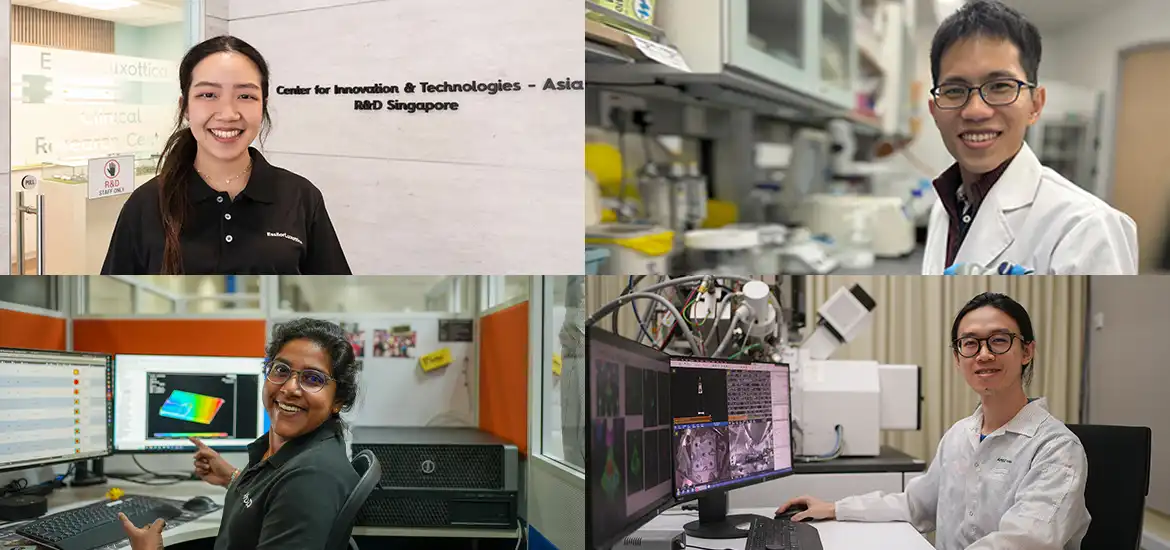Eyewear store Spectacle Hut, spectacle lens brand Crizal lenses, and eyewear brand Ray-Ban are familiar names in Singapore’s shopping malls. They are owned by the world’s largest eyewear brand – Italian-French MNC EssilorLuxottica. The company has had its Southeast Asia & Korea regional hub in Singapore since 1976.
R&D is one of the company’s key functions located here. EssilorLuxottica’s Center for Innovation & Technologies (CIT) Asia has been instrumental as the Group’s hub for myopia. CIT Asia has a team of 50 scientists and engineers who are focused on developing better myopia management solutions1.
Dr Wong Yee Ling, a Vision Scientist at EssilorLuxottica, has dedicated her research to combating myopia, a pressing public health issue in Singapore. Her team found that the prevalence of pathologic myopia in Singapore at 3.8% was one of the highest worldwide.
A recipient of the IPP scholarship supported by EDB (more details below), she pursued a PhD in Public Health at the National University of Singapore while working at EssilorLuxottica. Through the programme, she collaborated with top researchers from the Singapore Eye Research Institute to significantly advance the understanding of myopia’s epidemiology.
“Through the IPP, I collaborated with top myopia researchers from the Singapore Eye Research Institute to publish 11 peer-reviewed scientific articles to elucidate the epidemiology of pathologic myopia in Singapore. The coupling of both academia and industrial competencies through the IPP has set the stage for my career as a Vision Scientist, where I continue to contribute to the myopia management field,” said Dr. Wong.
Dr. Wong was one of three recipients of the Graduate Student Research Award (Epidemiology Domain) for the 2019/2020 academic year. The faculty award recognises graduate research students who have distinguished themselves in research, assessed by the quality and quantity of publications produced, and the public health impact of the recipient’s work.







